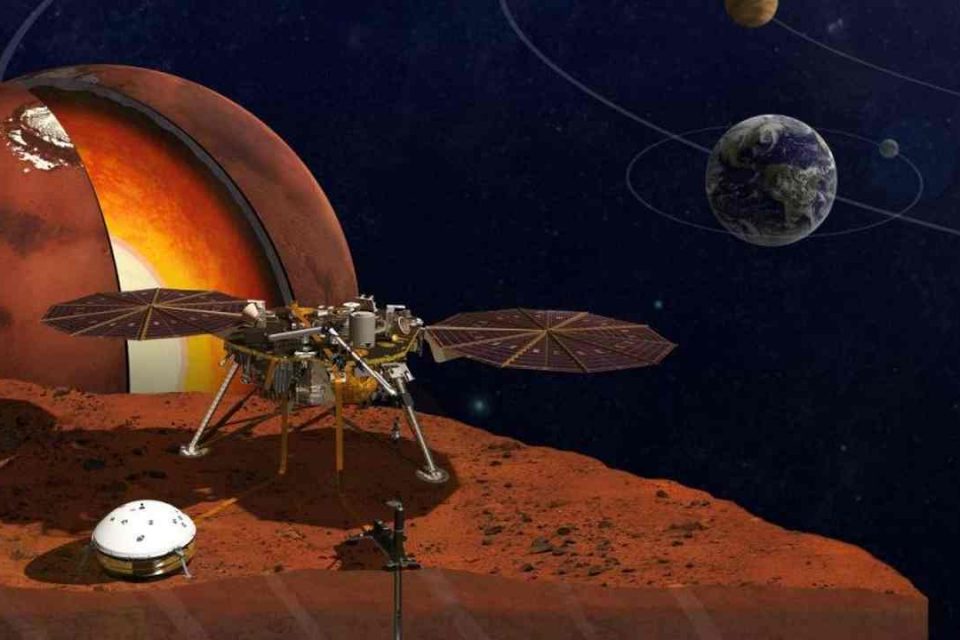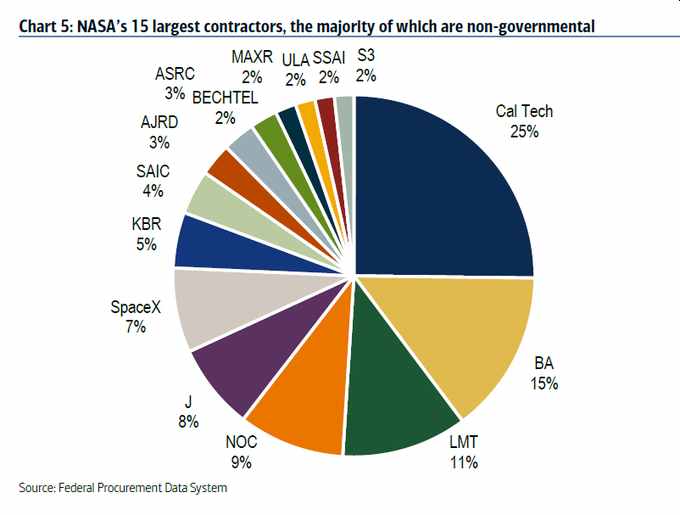Six of NASA’s 15 largest contractors in 2019 were private tech startup companies; space industry expects to triple to a $1.4 trillion market within 10 years

In recent years, hundreds of technology startups have flocked to the space industry. These young and innovative startups bring sophisticated and cutting edge technologies that include artificial intelligence, quantum computing, phased array radar, space-based solar power, “tiny” satellites and services.
According to recent research from Bank of America shared on CNBC, six of NASA’s 15 largest contractors in 2019 were private corporations. However, not many startup founders are aware of the opportunity to provide new technology solutions to the nation’s only space agency.
Below is a list of the top ten largest contractors working for NASA.
- Cal Tech: 25%
- The Boeing Company: 15%
- Lockheed Martin: 11%
- Northrop Grumman: 9%
- Jacobs Engineering Group: 8%
- SpaceX: 7%
- KBR: 5%
- SAIC – 4%
- Aerojet Rocketdyne Holdings: 3%
- ASRC Aerospace: 3%

“While the COVID-19 pandemic has led to delays in some public and private programs … the outbreak has not appeared detrimental to overall investment. This may largely be due to the fact that most spending in space is business-to-business/government (B2B/G), which generally recovers faster than business-to-consumer (B2C) spending,” Bank of America analyst Ron Epstein wrote in a research note to investors.
Bank of America said it expects the space industry to triple to a $1.4 trillion market within a decade. Sensing this opportunity, venture capitalists have poured $5 billion into space technologies in the first three quarters of 2019. In addition to the venture capitalists, NASA has also launched a series of programs to encourage young tech startups to take part in several pilot programs to develop new technologies for space.
One of these programs is NASA Technology Transfer Program. By offering a license with no up-front costs for commercial use of our patented technologies. With this program, NASA lets companies hold onto their cash while securing the intellectual property needed to carve out competitive market space.

